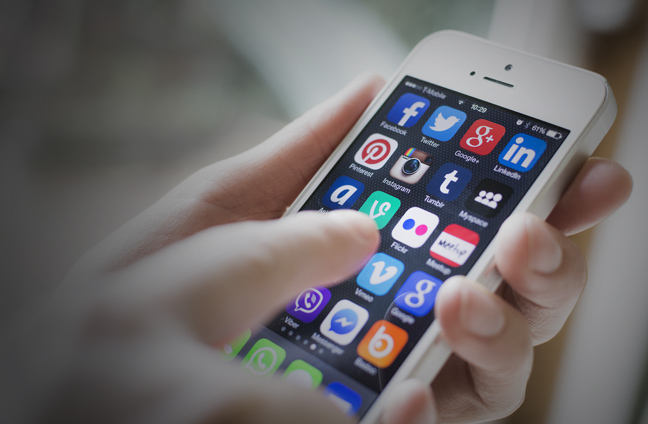Mobile technology has clear been a game-changer for digital marketing. The way is has impacted consumers’ daily lives has been unprecedented, and there is every reason to believe that the power and popularity of the channel will continue in 2015, and in years to come. What can we learn from the way consumers are using their smartphones in their everyday lives?
Smartphones are changing our lives, and our brains. These days, there is an app for just about everything from banking, to managing exercise schedules, to booking a cab. But countless other apps have made a real and considerable impact on the everyday lives of consumers.
A survey from Apigee has revealed fascinating insights on the extent of the influence that smartphone technology has had on consumers in the U.S. and UK. A key takeaway from the 2014 Digital Impact Survey was the understanding that smartphones now hold such considerable sway, that consumers say they don’t think they would be able to live their lives as usual without their smartphones.
It follows recent neuroscientific research, that found distinct differences between the brains of those who use smartphones compared to those who do not. According to researchers from the Institute of Neuroinformatics of the University of Zurich: “with smartphones — repeated use sculpts the brain.”
But does the impact of smartphone use equal addiction dependency?
Apigee’s survey revealed some compelling statistics that suggest there may well be some truth to the matter. The results of the survey, which measured the responses of 1,000 smartphone users in the U.S. and UK, may surprise you.
23 Stats Reveal How Hooked Consumers Are To Smartphones
Social Relationships
- 92 percent of smartphone users say that their mobile device has changed the way they connect with friends.
- 21 percent of users don’t think they could maintain a relationship without a smartphone.
- 55 percent check at least one app every hour (including at the dinner table).
Impacting Everyday Life
- 49 percent say smartphones have changed the way they date.
- 84 percent say smartphones have changed the way they shop.
- 78 percent say smartphones have changed the way they bank.
- 70 percent percent say smartphones have changed the way they watch television.
- 65 percent say smartphones have changed the way they do their job.
‘Appdiction’
- 77 percent have downloaded a banking app.
- 72 percent have downloaded a retail app.
- 60 percent have downloaded a diet or fitness app.
- 81 percent agree that their smartphone made them more productive.
- 88 percent have a favorable perceptions of shopping via an app.
What Consumers Think Of Their Smartphones
- 58 percent say smartphones have even changed their health.
- 88 percent of smartphone owners will spend at least as much time on their devices as they did last year.
- 30 percent of users expect their mobile use to increase this year.
- And 32 percent plan to increase the number of apps they download.
‘There Should Be An App For That’
- 94 percent expect apps from their bank.
- 92 percent expect apps from department stores.
- 91 expect apps from restaurants.
- 90 percent expect apps from grocery stores.
- 86 percent expect apps from educational institutes.
- 72 percent expect apps from local government.
- 49 percent even expect an app from their church!
Raising Consumer Expectations
Smartphones are successful and popular because they make the lives of consumers easier. Apps serve a specific purpose, offer the function the simplicity that busy consumers yearn for, and often provide the great user experiences that provide lasting positive influence for brands and businesses.
As the report states: “People expect a broad range of the businesses and other organizations with which they interact to provide key products and services via apps within the next two years.”
And the changes are here to stay. As Pablo Kenney, a research analyst at Apigee concludes: “the survey shows that this is not a momentary wave, but a true paradigm shift.”



